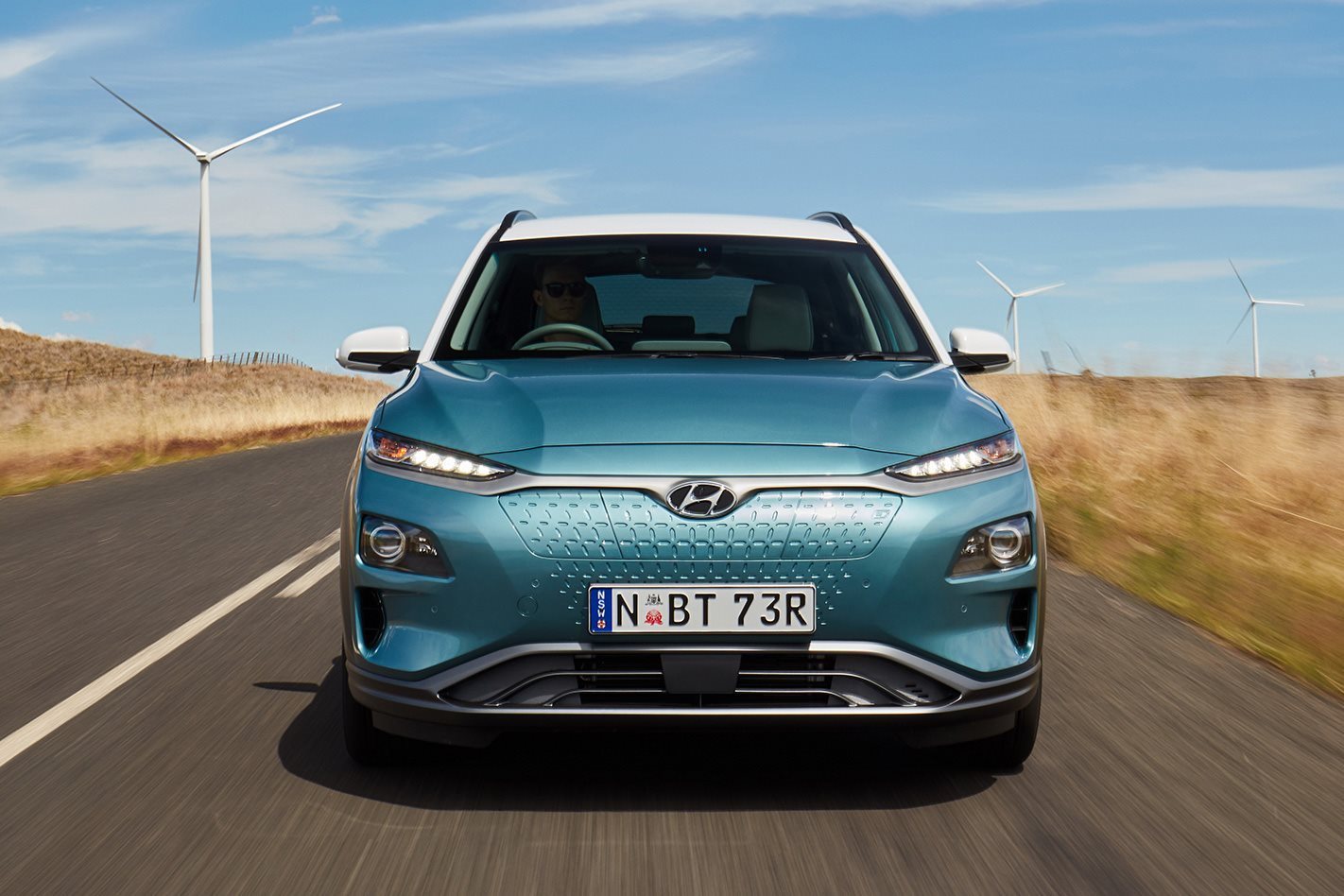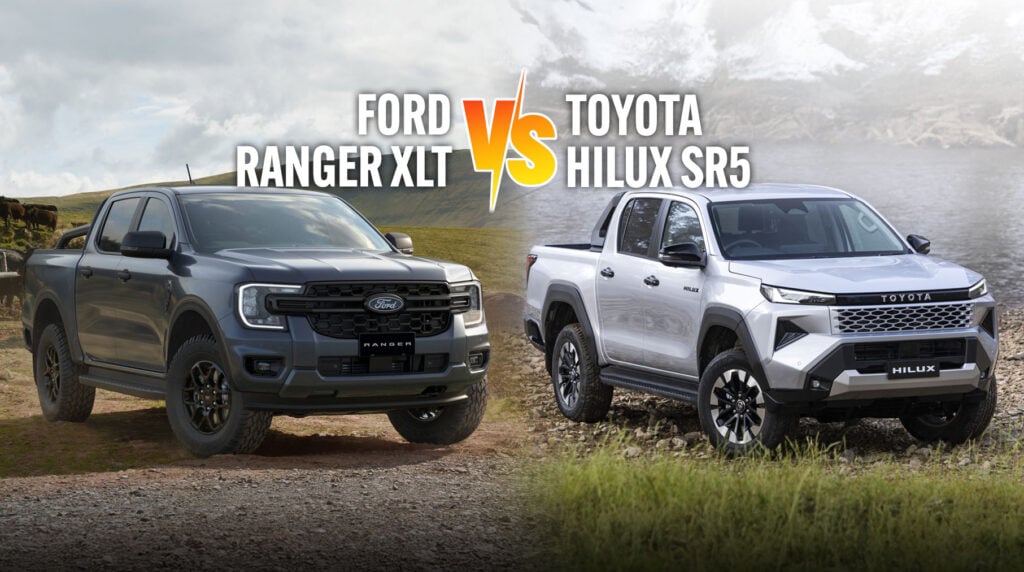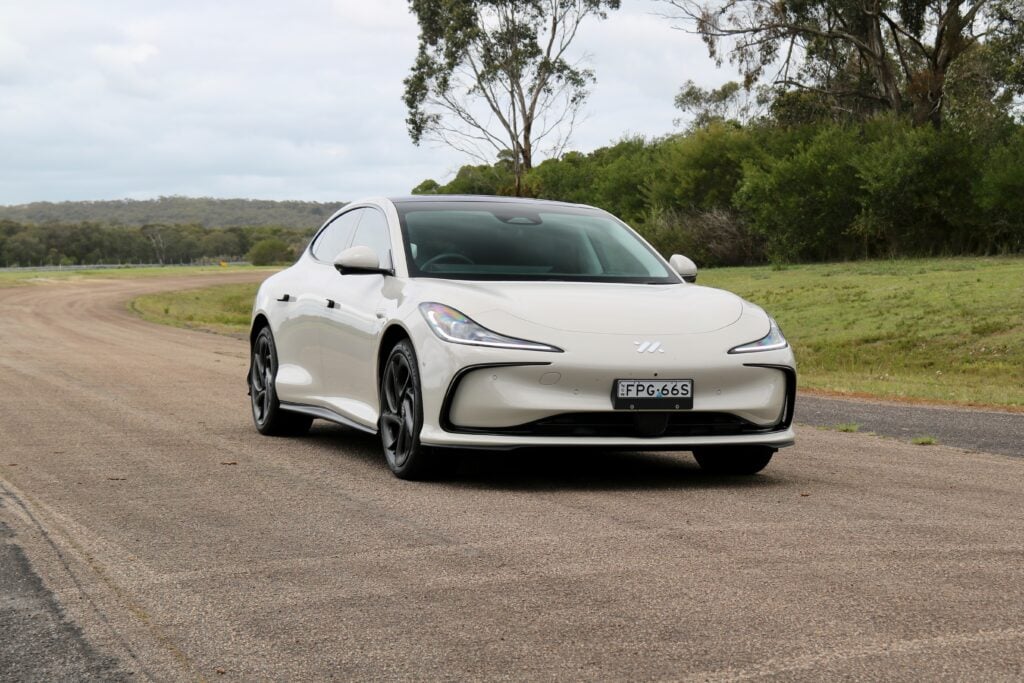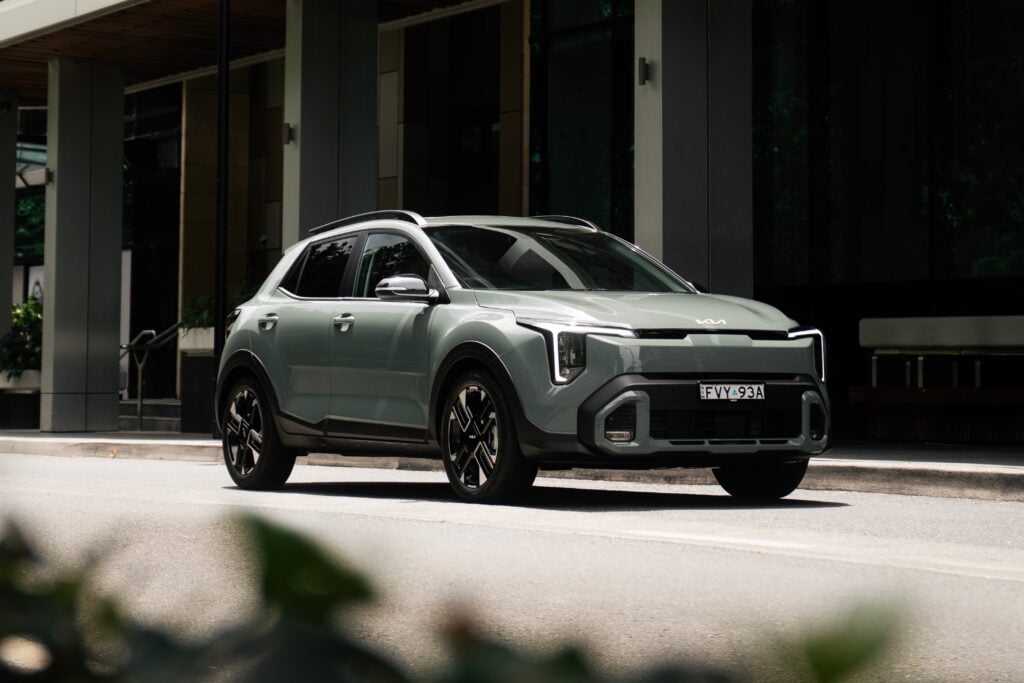Things we like
- Excellent NVH
- Strong acceleration
- Comfortable interior
- Range
Not so much
- Price
- Patchy charging infrastructure
- Range
The Wheels Verdict: Set aside your range anxiety and the inconvenience of charging for extended periods and there’s nothing about driving the Kona EV that’s inferior to an ICE-powered version. In some areas, such as NVH and rolling acceleration, it’s vastly superior. However, a $25K price premium over its ICE doppelganger will be the deal breaker for many people.
WHAT IS THE HYUNDAI KONA EV?
Hyundai’s second all-electric model follows hard on the heels of the Ioniq hatch. Like the Ioniq, the Hyundai Kona EV is a variant in a full model range, meaning you can also buy it with one of two petrol four-cylinder engines. It’s differentiated from its stablemate by its SUV body style and large, 64kWh lithium-ion polymer battery, which gives it an effective urban range of 450km, or 400km on the highway.
WHY WE’RE TESTING IT
The Kona’s positioning as a long-range EV in a small SUV body style is unique, as is its price point and powerful battery. It offers something a little different in the still shallow gene pool of dedicated-EV offerings.
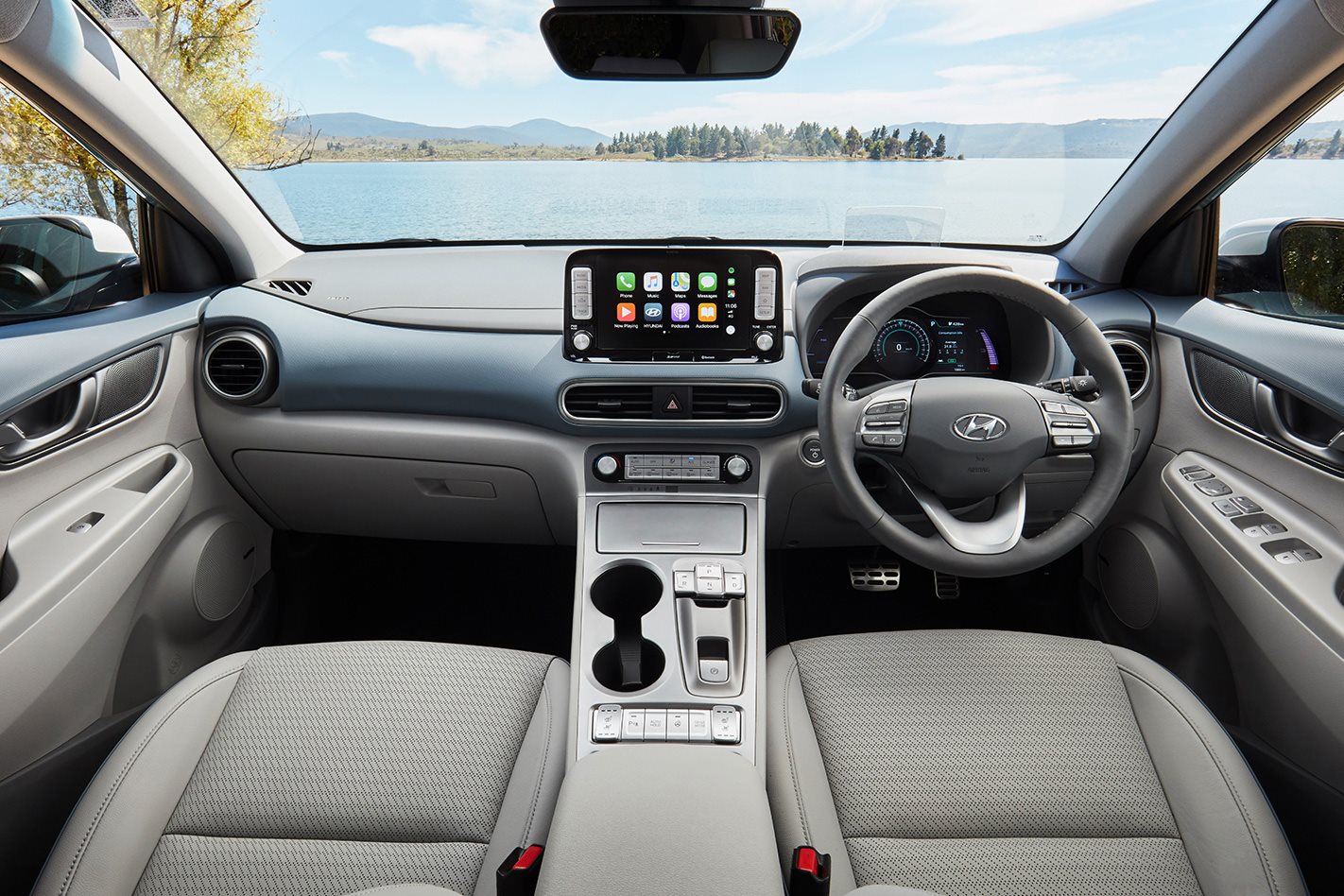
HYUNDAI KONA EV HIGHLANDER REVIEW
The Kona EV is an attractive but not overly radical-looking compact SUV. Unlike a Jaguar I-Pace, a Tesla or a Nissan Leaf, it’s an EV variant in a model range with multiple propulsion options: you can have it with a choice of two four-cylinder petrol engines, or in this electric guise.
The Kona EV is modestly differentiated from its ICE siblings but shares many body panels and components. It is quite a bit heavier, though, weighing 1743kg in this top-spec Highlander version compared with 1383kg for the 2.0-litre MPi version.
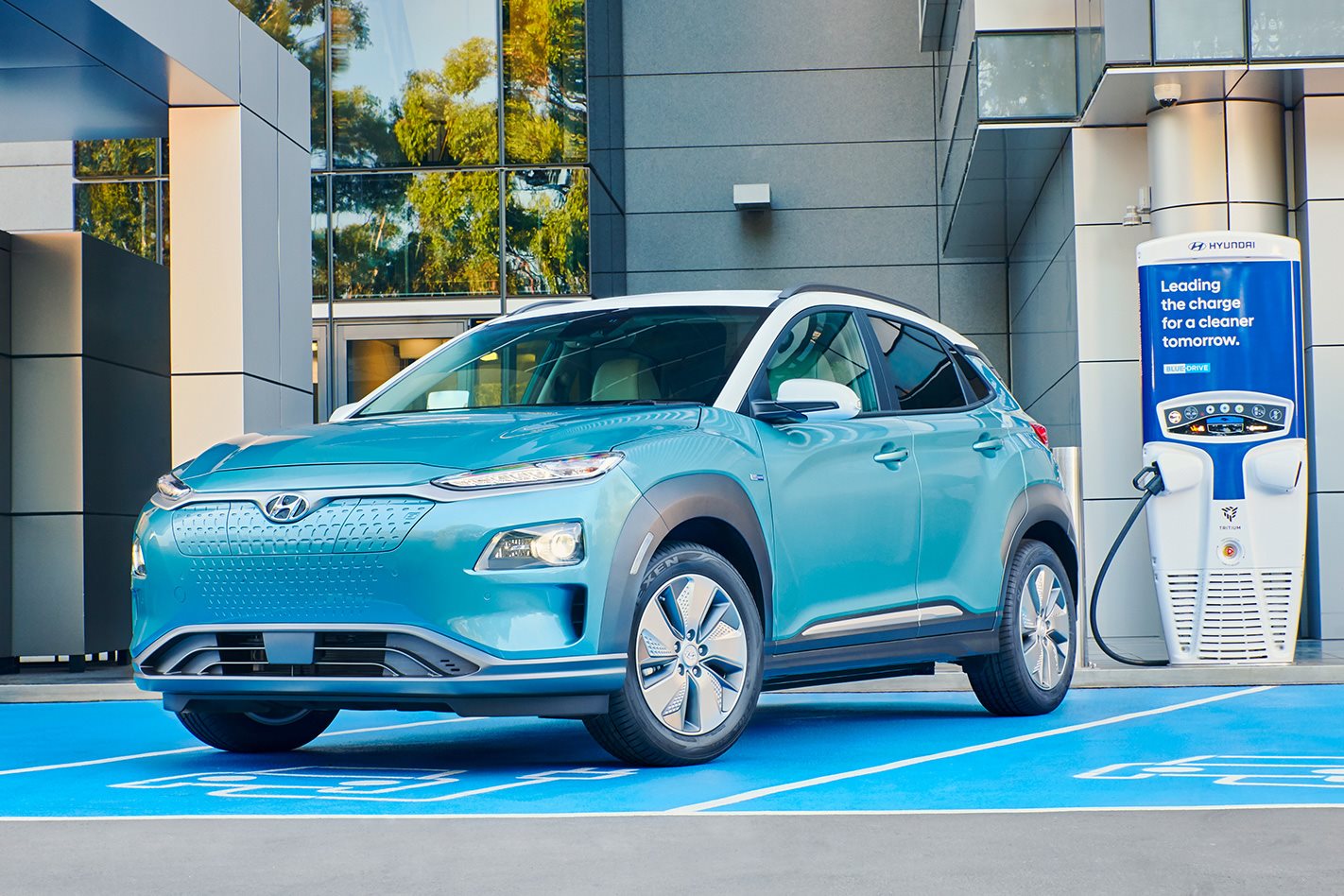
The Kona’s large battery is the culprit here, its underfloor location requiring subtle design differences and small dimensional changes. The low centre of mass helps ensure impressively flat handling, though, while localised suspension tuning has found the ride-handling sweet spot.
The Kona is well finished and nicely styled inside, with a floating centre console and light-coloured trim. Much of the layout and equipment is familiar Hyundai fare, but there are important differences, like the digital instrument cluster and centre screen, and the cross-shaped array of drive-by-wire buttons in lieu of a shifter.
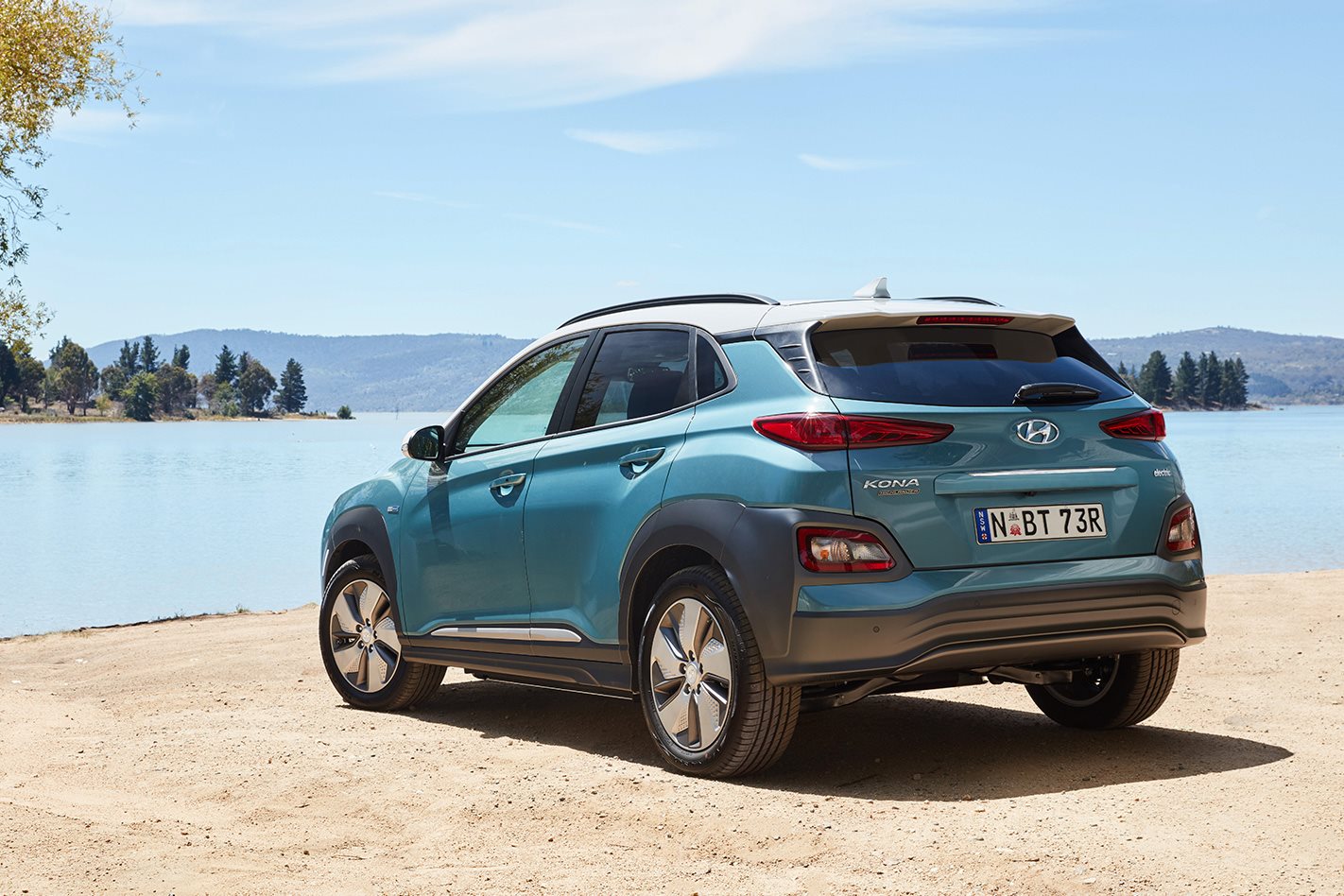
A digital chime plays on start-up, but aside from that the Kona is so quiet when running it’s been designed to project a low, harmonic sound at speeds below 30km/h to alert pedestrians to its presence.
Acceleration is instantly strong and linear, though there’s some initial jerkiness as you come to terms with its regenerative braking, which slows the car dramatically when you come off the throttle. This can be adjusted via paddles mounted on the steering wheel.
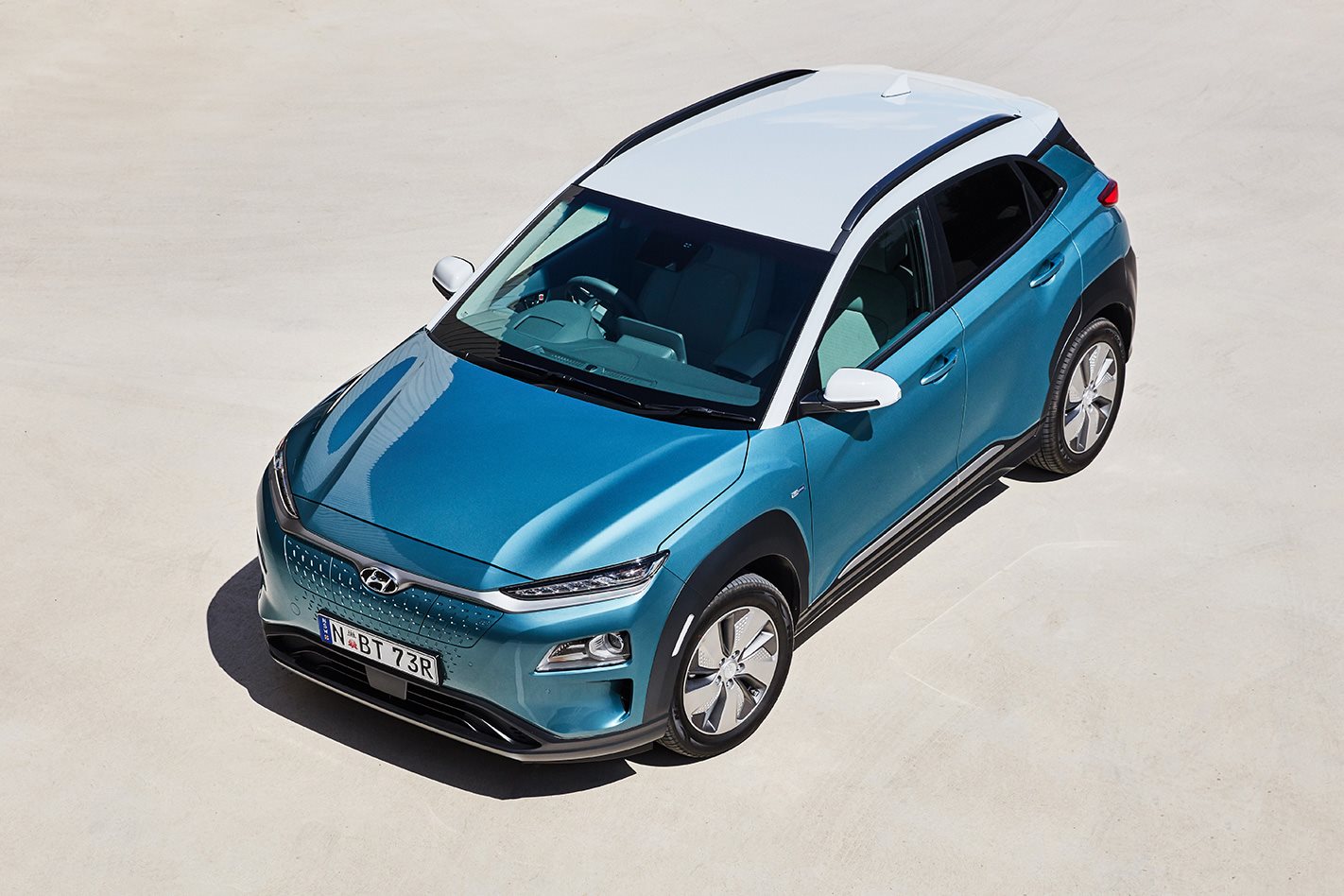
There are three drive modes – Eco, Comfort and Sport – with Comfort providing the best balance for highway driving. Overtaking performance is impressively brisk. Put the foot down at 100km/h and the Kona surges forward. Noise suppression is excellent, too, and driving position and seat comfort are both exemplary.
Our road test took four and a half days and covered 2212km up the Queensland coast, from Coolangatta to Cairns, so we did a lot of charging. A network of 50kW DC fast chargers took the battery to 90 percent capacity in between 60 and 90 minutes, each charge delivering an effective highway range of just under 400km.
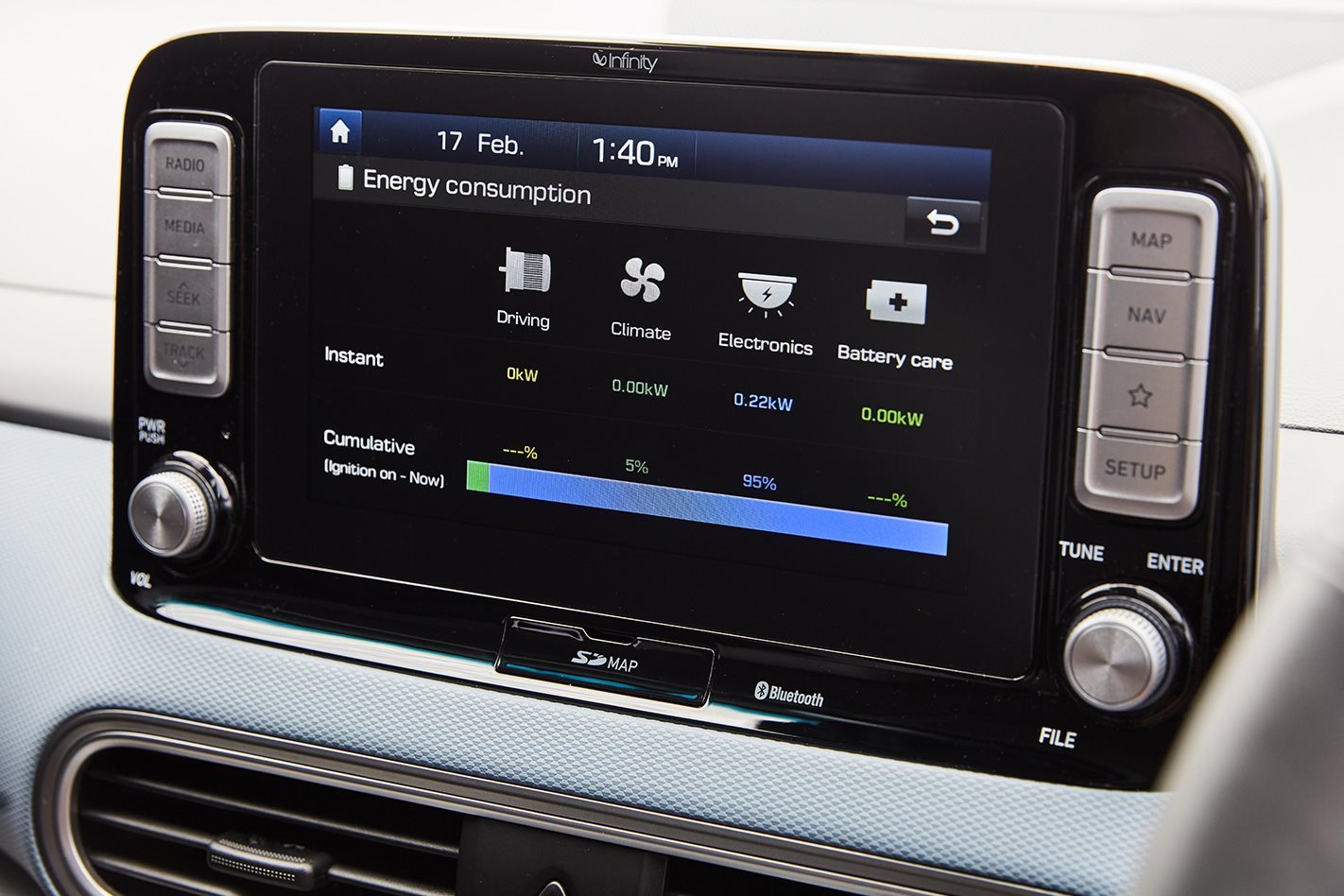
The car’s trip computer does a good job of keeping you appraised of battery status and distance to empty but we cut it fine a couple of times. When this happens, the Kona’s Eco+ setting, selected manually, can help you eke out your remaining battery life by shutting down air-con and limiting speed to 80km/h, unless overridden.
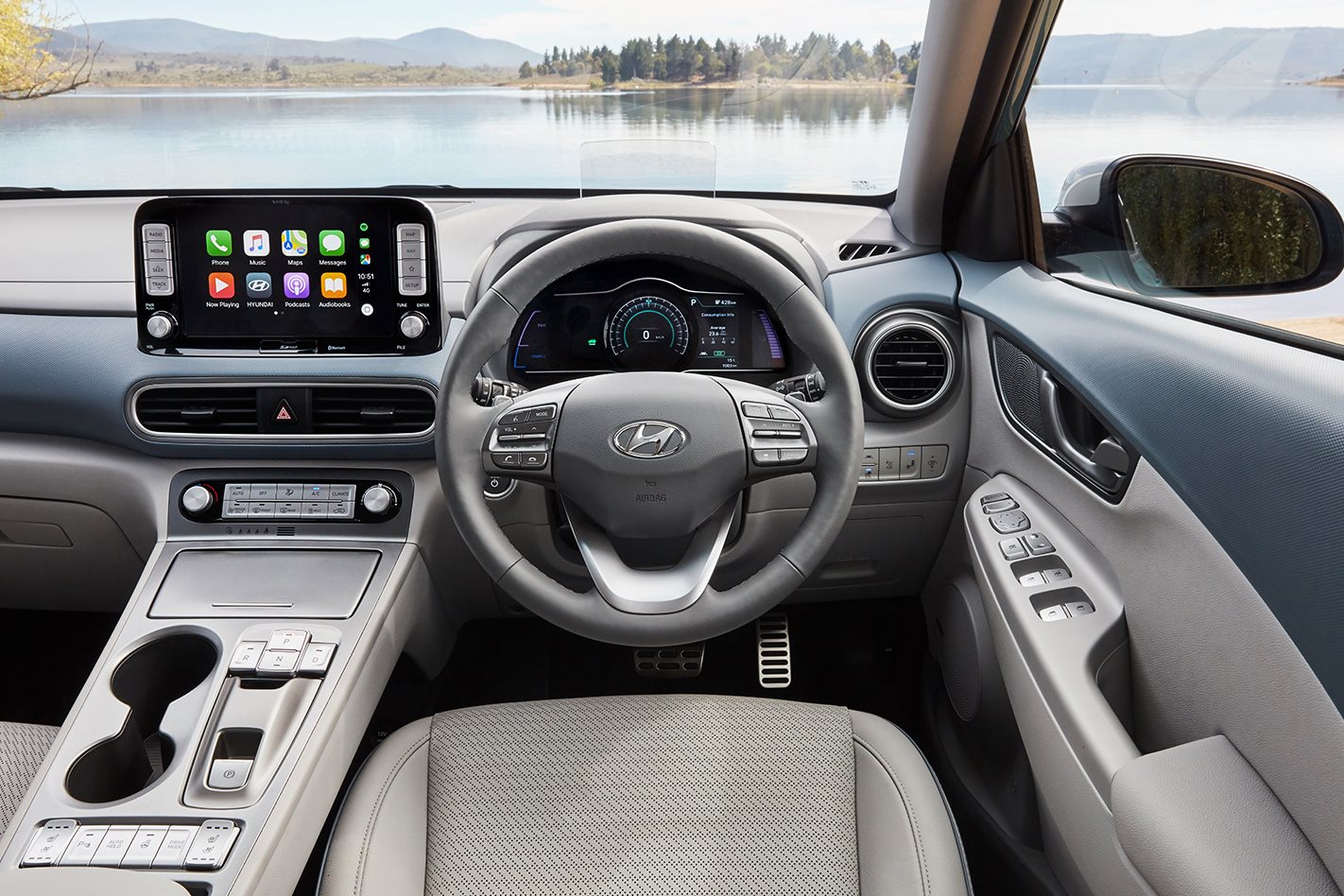
HYUNDAI KONA VS RIVALS
The Kona EV sits in rarefied company as there are so few pure EV options on the market. Perhaps its nearest rival is BMW’s i3S, which sells for only slightly more coin ($69,990) and has similar outputs of 135kW and 270Nm. However, its battery and range both fall short of the Kona, as does that of the Nissan Leaf, which will cost around $50K when it arrives here in August.
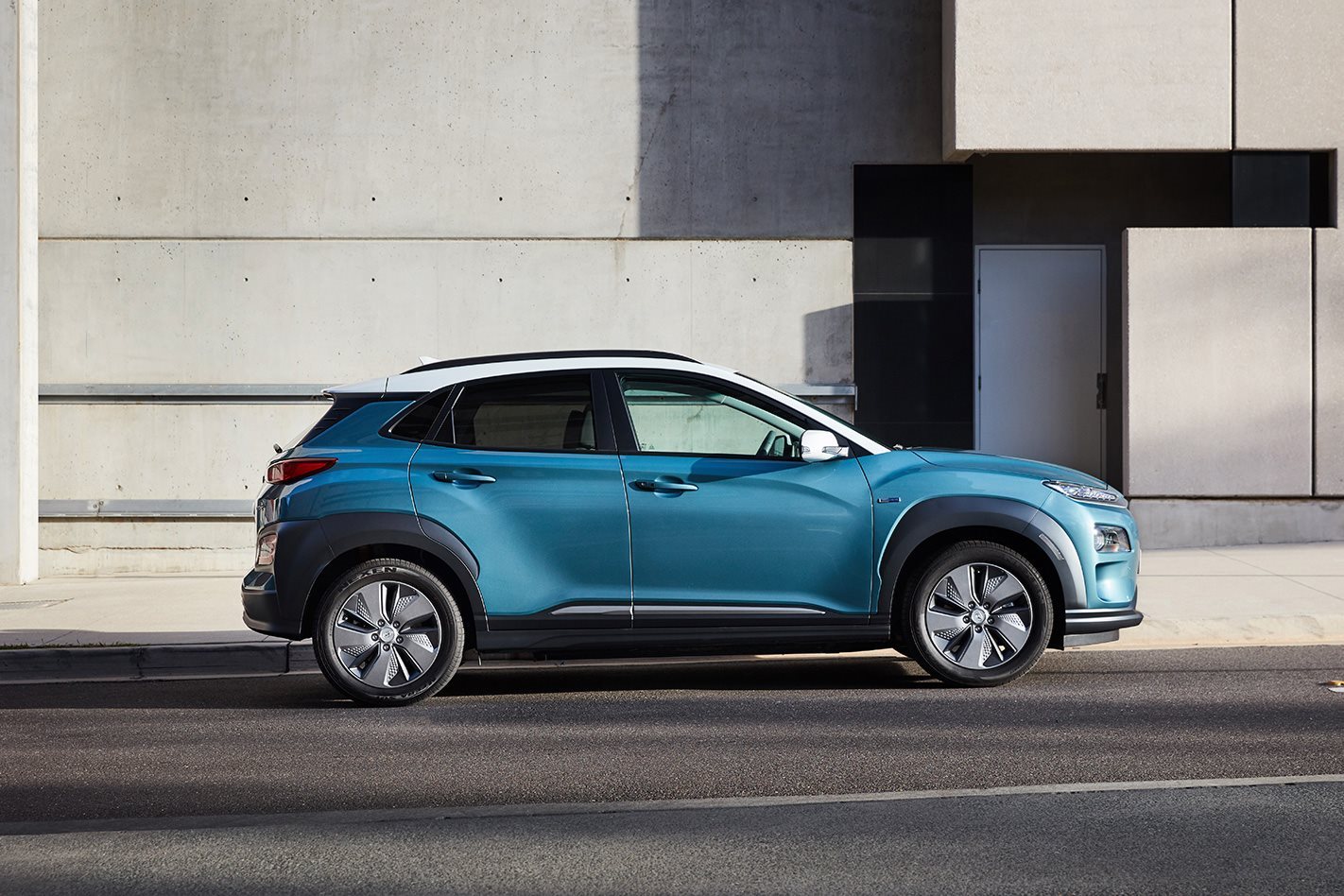
HYUNDAI KONA EV HIGHLANDER PRICE AND SPECS AUSTRALIA
- Model: Hyundai Kona EV Highlander
- Motor: Permanent magnet synchronous
- Max power: 150kW
- Max torque: 395Nm
- Transmission: Single speed reduction gear
- Weight: 1743kg
- 0-100km/h: 7.6 seconds (claimed)
- Economy: 14.7kWh/100km (tested)
- Price: $64,490
- On sale: Now
MORE: Hyundai Kona Range Review MORE: Hyundai Kona Specs, Range & Price
Things we like
- Excellent NVH
- Strong acceleration
- Comfortable interior
- Range
Not so much
- Price
- Patchy charging infrastructure
- Range

